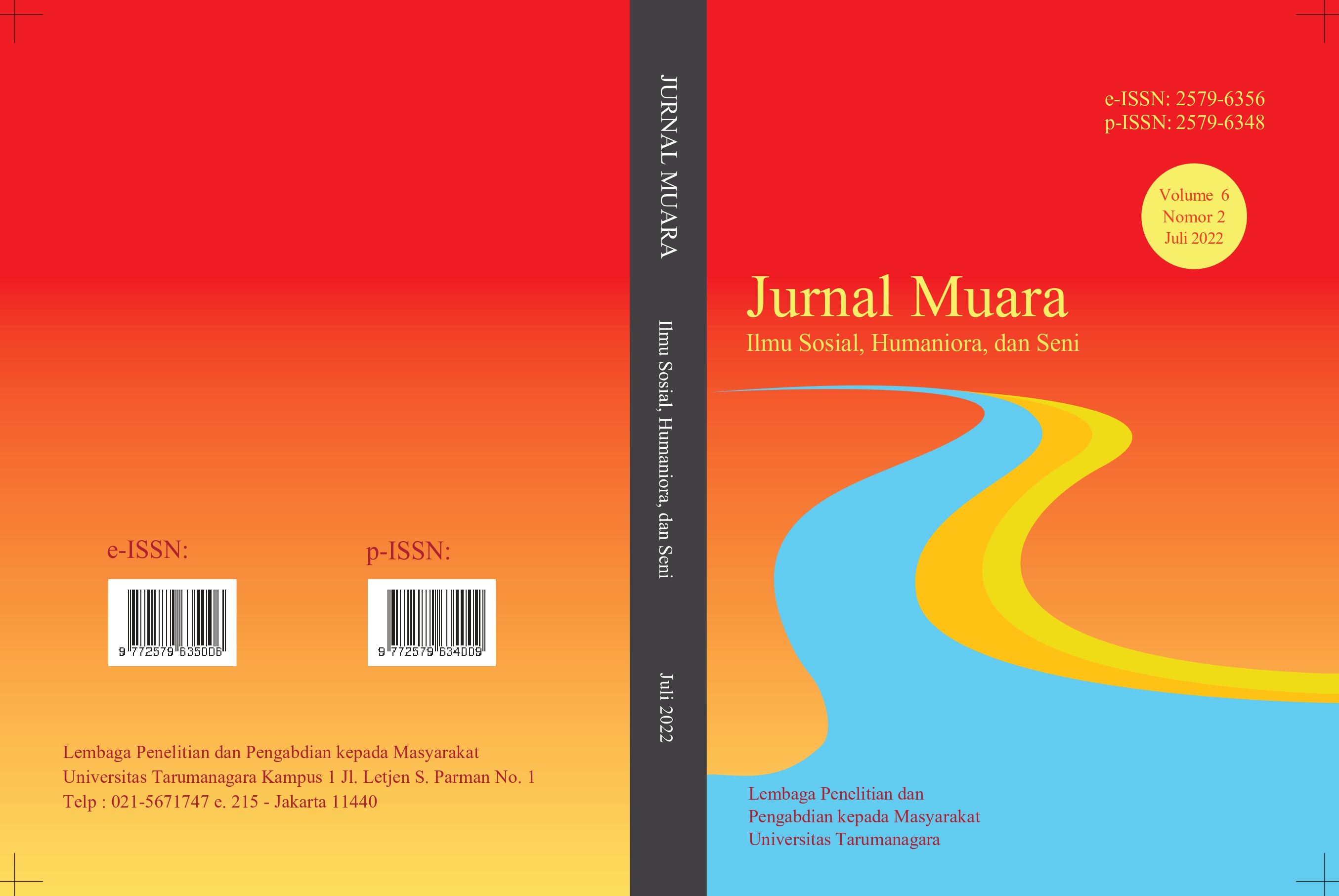HUBUNGAN SPIRITUALITAS DENGAN RESILIENSI PADA DEWASA AWAL PENYINTAS COVID-19 DI JAKARTA
Main Article Content
Abstract
COVID-19 survivors are prone to experience stress, loneliness, anxiety, and other negative emotions that could emerge during the isolation or their treatment period. The role of resilience is very important for COVID-19 survivors to face their situations and heal psychologically. Previous research has shown that there is a correlation between spirituality and resilience in different cases. Jakarta is an area with the highest COVID-19 cases in Indonesia, with majority of the people who were infected are still in their early adulthood. This study aims to find out the correlation between spirituality and resilience in COVID-19 survivors in Jakarta. This study involved 200 samples, obtained by using the non-probability sampling technique. This research used a quantitative approach and adapted versions of the Spirituality Attitude and Involvement List by Meezenbroek et al. (2012) and the Brief Resilience Scale by Smith, et al. (2008). The results of the analysis between the variable spirituality and resilience using Pearson Correlation have a value r = 0.461 and p = 0.000 < 0.05, which means there is a significant positive correlation between spirituality and resilience, which can be concluded that the higher level of spirituality, the higher resilience in COVID-19 survivors.
Article Details
Section

This work is licensed under a Creative Commons Attribution-NonCommercial-ShareAlike 4.0 International License.
This work is licensed under a Jurnal Muara Ilmu Sosial, Humaniora, dan Seni Creative Commons Attribution-ShareAlike 4.0 International License.References
Barry, C.M., & Nelson, L.J. (2005). The role of religion in the transition to adulthood for young emerging adults. Journal of Youth and Adolescence, 34(3), 245-255.
Cahyani, Y. E., & Akmal S. Z. (2017). Peranan spiritualitas terhadap resiliensi pada mahasiswa yang sedang mengerjakan skripsi. Jurnal Psikoislamedia, 2(1), 32-41.
Elkins, D.M., Hedstrom, J., Hughes, L.L., Leaf, J.A., & Saunders, C. (1988). Toward a humanistic-phenomenological spirituality: Definition, description, and measurement. Journal of Humanistic Psychology, 28(5), 18.
Fachrunisa, R.A. (2021). Strategi coping pada penyintas Covid-19 yang mengalami stigma: Sebuah studi fenomenologi. Psychopolytan: Jurnal Psikologi, 5(1) 26-38.
Jurjewicz, H. (2016). How spirituality leads to resilience a case study of immigrants. European Journal of Science and Theology, 12(4), 17–25.
Kim, Y., & Seidlitz, L. (2002). Spirituality moderates the effect of Stress on emotional and physical adjustment. Personality and Individual Differences, 32(8), 1377–1390.
Klussman, K., Nichols, A. L., & Langer, J. (2020). The role of self-connection in the relationship between mindfulness and meaning: A longitudinal examination. Applied Psychology: Health and Well-Being. Advance online publication.
Masten, A. S. (2007). Resilience in developing systems: Progress and promise as the fourth wave rises. Development and Psychopathology, 19, 921-930. https://doi.org/10.1017/S0954579407000442
Meezenbroek, E. de J., Garssen, B., Berg, M. van den, Tuytel, G., Dierendonck, D. van, Visser, A., & Schaufeli, W. B. (2012). Measuring spirituality as a universal human experience: development of the spiritual attitude and involvement List (SAIL). Journal of Psychosocial Oncology, 30(2), 141– 167.
Negru-Subtirica, O., Tiganasu, A., Dezutter, J., & Luyckx, K. (2017). A cultural take on the links between religiosity, identity, and meaning in life in religious emerging adults. British Journal of Developmental Psychology, 35, 106-126.
Novianty, A. & Garey, E. (2020). Memahami makna religiusitas/spiritualitas pada individu dewasa muda melalui photovoice. Jurnal Psikologi Integratif, 8(2), 61-79.
Pantow, P.J.T., Naharia, M., & Kumaat, T.D. (2020). Psychological well-being penyintas COVID-19 di kota Bitung. 1(1) 37-43.
Papalia, D.E., Old, S.W. & Feldman, R.D. (2009). Human Development (11th Ed.). McGraw Hill, New York.
Papalia, D.E., & Martorell, G. (2020). Experience Human Development (14th Ed.) McGraw Hill, New York.
Park, C. L. (2007). Religiousness/ spirituality and health: A meaning systems perspective. Journal of Behavioral Medicine, 30, 319 – 328.
Permana, D. (2018). Peran spiritualitas dalam meningkatkan resiliensi pada residen narkoba. Syifa Al-Qulub, 2(2), 21–32.
Reisnick, B.G., Gwyther, L.P., & Roberto, K. (2011). Resilience in aging: concepts, research, and outcomes. Springer Science and Business Media, Durham.
Sahoo, S., Mehra, A., Dua, D., Suri, V., Malhotra, P., Yaddanapudi, L.N., Puri, G.D., & Grover, S. (2020). Psychological experience of patients admitted with SARS-CoV-2 infection. Asian Journal of Psychiatry.
Sugiyono. (2016). Metode Penelitian Kuantitatif, Kualitatif, R&D. IKAPI, Bandung.
Smith, B. W., Dallen, J., Wiggins, K., Tooley, E., Christopher, P., & Bernard, J. (2008). The brief resilience scale: Assessing the ability to bounce back. Journal of Behavioral Medicines International, 1(5), 194–200.
World Health Organization (2020). Home care for patients with COVID-19 presenting with mild symptoms and management of their contacts. World Health Organization, Geneva.
